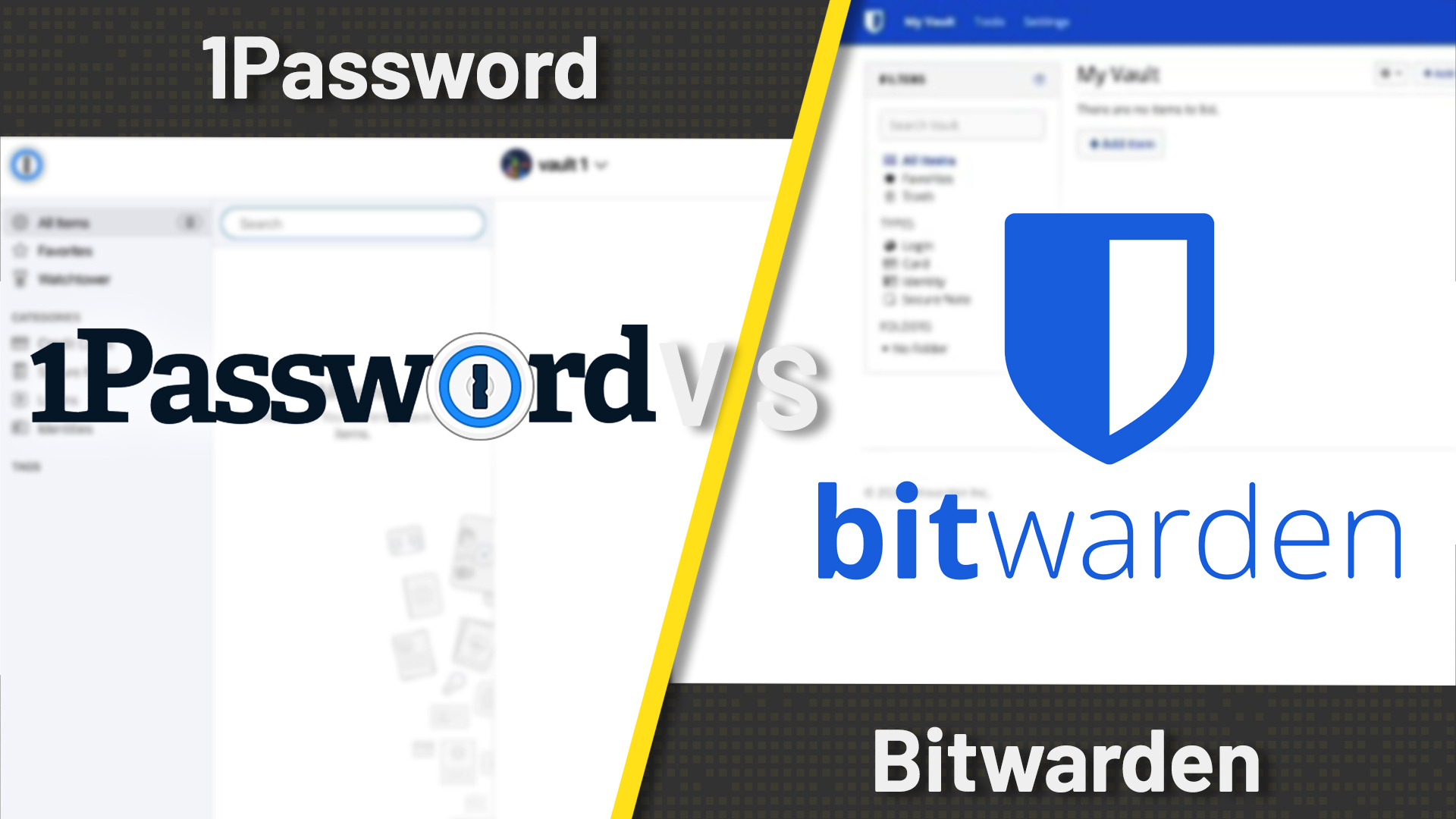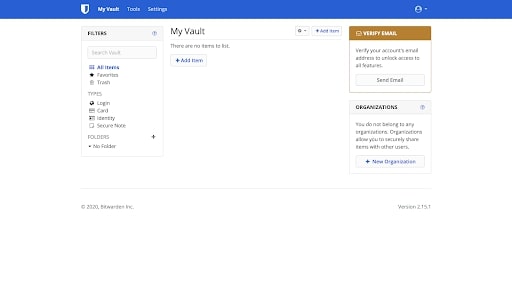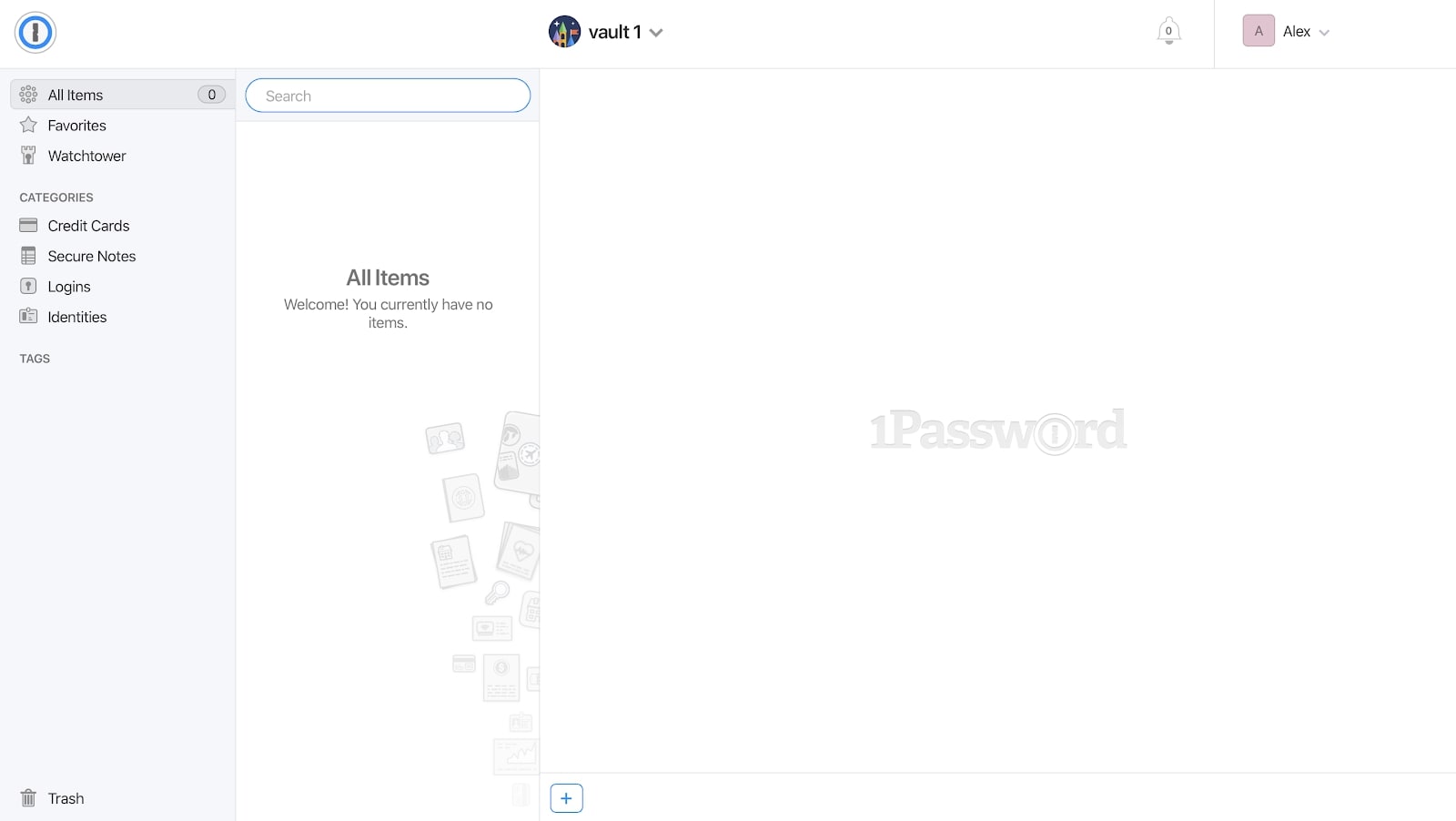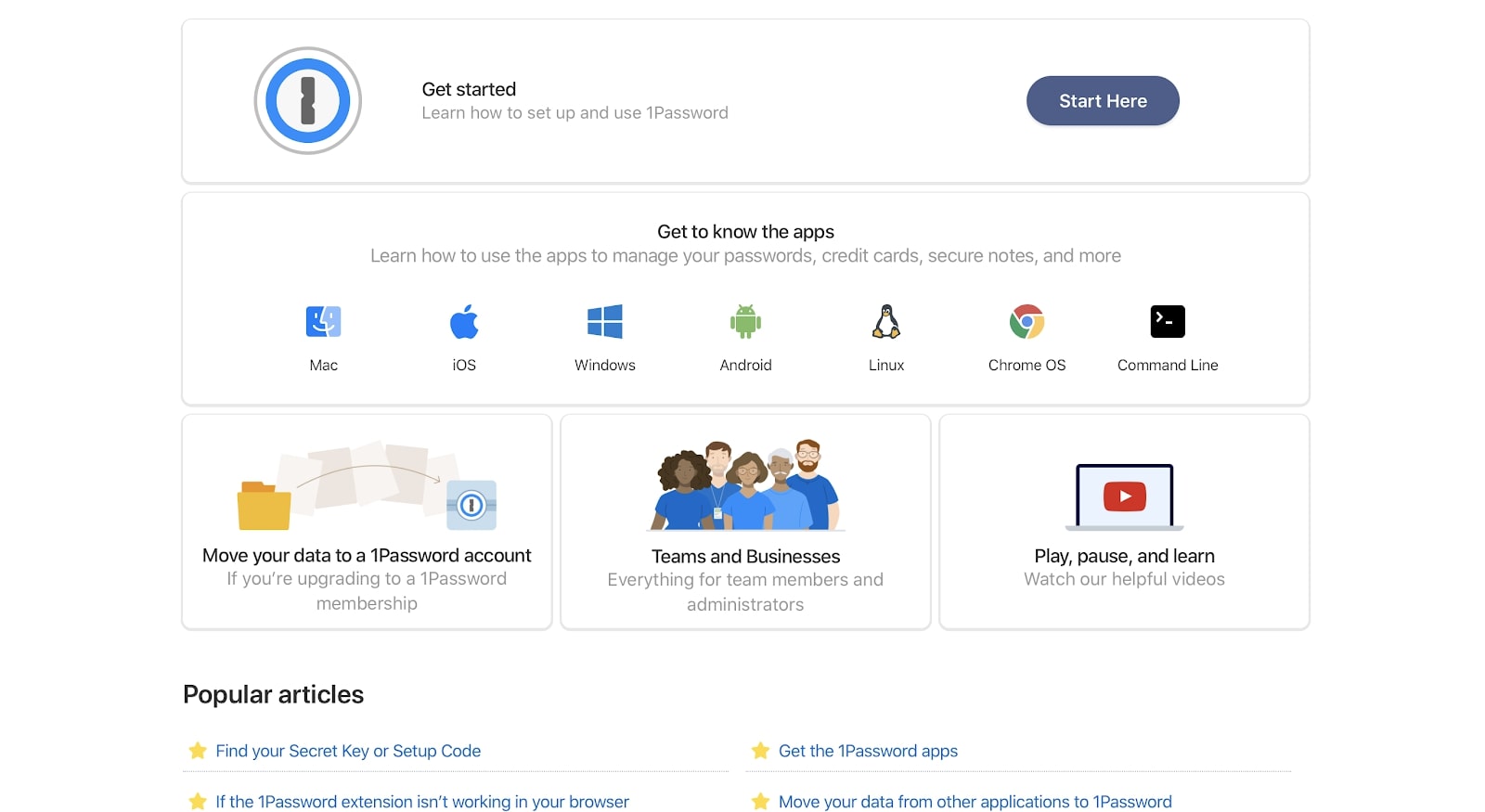1Password vs Bitwarden
We compared 1Password vs Bitwarden, to see which of these top password managers comes out on top in protecting your important logins


With users needing to sign into dozens of different sites daily and on multiple devices, unique password requirements including length, numbers, capital letters, or special characters can make everything much more difficult.
The best password managers have ensured that remembering your passwords, a relatively straightforward matter with fewer online accounts, is now no longer a complex problem.
We have elected to compare 1Password vs Bitwarden, two leading password managers, to assess the advantages and disadvantages each provider offers, in order to assist you in determining which is right for you or your business.
- 1Password: secure, multi-platform manager
1Password offers cross-OS support for Windows, macOS, and Linux, as well as apps for mobile OSs. It supports 2FA, and offers AES 256-bit encryption across individual, family, team, and enterprise plans. Tools include file storage, team password administration, keylogging protection, and security breach alerts. - Bitwarden: open-source, secure service
Bitwarden offers open-source password management, with a free personal plan as well as a Premium package, alongside business plans. Among its top features are 2FA, a secure password generator, encrypted file attachments, and vault health reports.
1Password vs Bitwarden: Features

Each application has deep tools for password generation and management. Regardless of which platform you choose, you’ll be able to sync passwords across all your devices, generate passwords for new accounts, and more. 1Password supports password recovery for up to 365 days, making it easier to avoid losing important information.
Furthermore, both providers use a master password to protect your account. While this improves security, it also removes the traditional “forgot your password” process that you may be accustomed to on other sites. You may be able to recover the account—by accessing a device that can sign in automatically, for example—but losing access is a real possibility if you forget your master password.
Neither 1Password nor Bitwarden is limited to passwords. You can enter other pieces of information, such as credit cards, notes, and contacts. These can also be securely shared with other users in your family or organisation. Unfortunately, neither platform supports information sharing outside of its own family and team subscriptions.
1Password vs Bitwarden: Performance

Bitwarden and 1Password are accessible online, but you can also download applications for a variety of devices. 1Password offers apps for Linux, Chrome OS, macOS 10.13 and later, iOS 12 and later, Windows 7 and later, and Android 5.0 Lollipop and later, along with a command line tool. Browser extensions are also available for Chrome, Firefox, Safari, and Brave.
Similarly, Bitwarden provides apps for Linux, Windows 7, 8, and 10, macOS 10.10 and later, iOS and Android, and command line, as well as browser extensions for Chrome, Safari, Firefox, Vivaldi, Opera, Tor Browser, Microsoft Edge, and Brave.
Both platforms have straightforward interfaces, although 1Password looks slightly more modern. They also have similar functions. With 1Password, you can create individual vaults for different types of information (home and work, for example). Bitwarden’s folders serve the same purpose.
1Password vs Bitwarden: Support

Each platform provides thorough responses to common questions and issues through the Help page. 1Password has separate articles for each application, along with a full section for teams and businesses.
Additionally, both 1Password and Bitwarden have active community forums where you can get a more personalised response. If you’re using 1Password, you can contact the team directly via email or Twitter. Email support is available 24/7. Business subscribers get VIP support, and Enterprise users gain access to a dedicated account manager.
Bitwarden also states that premium users get priority support, but it doesn’t clarify the difference between regular and priority. Free members can still email the support team for help, which is surprisingly good service for non-paying users. Neither provider appears to offer phone or live chat support.
1Password vs Bitwarden: Pricing and plans
Both Bitwarden and 1Password offer separate subscriptions for individuals and businesses. That said, only Bitwarden provides free access, and ranks among the best free password managers with its service. Free Bitwarden users can sync passwords to an unlimited number of devices, store an unlimited number of passwords, and generate new passwords when creating accounts.
At £8.13 a year, Bitwarden Premium for individuals adds priority support, 1GB of storage, and other features. You can add up to five family members with a family account for just £32.51 a year.
Bitwarden has two business plans, namely Teams and Enterprise. Teams costs £2.44 per user per month, and Enterprise £4.06 per user per month. Teams subscribers get priority support, 1GB of storage, support for up to five users, and more. Enterprise introduces user groups, enterprise policies, and directory link, among other features.
1Password offers a 30-day free trial rather than ongoing free access. Subscriptions cost £2.43 a month for individuals and £4.06 a month for families of up to five people. For organisations, the Teams plan (limited to 10 employees) costs £16.21 a month, while Business costs £6.49 per user a month. Both 1Password and Bitwarden offer custom Enterprise solutions for larger companies.
1Password vs Bitwarden: Verdict
Bitwarden and 1Password are two of the top password managers available, and it’s tough to pick a clear winner when both options have so many features. Bitwarden’s free plan is hard to beat, and there are extensions for a wider range of browsers.
Furthermore, Bitwarden is an open-source platform that’s substantially more affordable. On the other hand, 1Password looks slightly sleeker, and offers a native app for Chrome OS.
With that in mind, the best option ultimately depends on what you’re looking for. We hope that this article gave you the information you need to identify the right password manager for you or your business.
Further reading on password managers
Test your password strength with a selection of free tools; and if you've happened to lose important passwords, use the best password recovery tools to try and save the day. If you're set on buying a password manager for your company, make sure to peruse the best password managers for business before you sign up.
Get the ITPro daily newsletter
Sign up today and you will receive a free copy of our Future Focus 2025 report - the leading guidance on AI, cybersecurity and other IT challenges as per 700+ senior executives
Alex is a writer focused on providing insightful, actionable content that can truly change the way readers approach their finances. Alex has been writing as a freelancer for several years on a variety of topics including marketing, parenting, and customer relationships along with personal finance. He’s particularly interested in the way seemingly small adjustments can transform a person’s financial outlook.
-
 Bigger salaries, more burnout: Is the CISO role in crisis?
Bigger salaries, more burnout: Is the CISO role in crisis?In-depth CISOs are more stressed than ever before – but why is this and what can be done?
By Kate O'Flaherty Published
-
 Cheap cyber crime kits can be bought on the dark web for less than $25
Cheap cyber crime kits can be bought on the dark web for less than $25News Research from NordVPN shows phishing kits are now widely available on the dark web and via messaging apps like Telegram, and are often selling for less than $25.
By Emma Woollacott Published